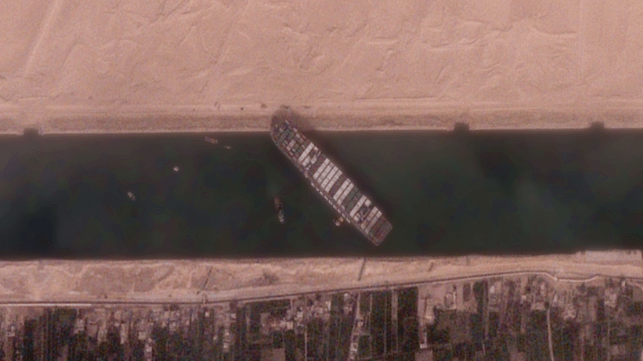The Ever Given Shows the Unique Nature of Salvage in Contract Law

The Court of Appeal decision in Smit Salvage BV & Ors v Luster Maritime SA & Anr (The ‘Ever Given’) highlights the challenges of negotiating contracts in rapidly changing environments, particularly in cases involving maritime casualties. Attempting to finalize a contract amidst such fluid circumstances can lead to uncertainties and legal disputes, as demonstrated in this case.
The judgment underscores the widely recognized appropriateness of the Lloyd's Open Form (LOF) in situations of maritime risk. Smit, the salvor, initially proposed utilizing LOF but was open to promptly entering into a commercial contract to regulate their position. However, the contract was never actually agreed.
Despite the absence of a formal contract, Smit proceeded with salvage operations after the Suez Canal Authority's (SCA) earlier attempts had failed. By salvaging and refloating the vessel, Smit provided a service to the owners without a “contract” of any description but under common law salvage provisions. The legal action initiated thereafter could be viewed as a distraction from the essential service rendered in salvaging the ship.
The judgment leaves open the question of what the court will ultimately award for the services provided. These considerations will be based on principles outlined in Article 13 of the Salvage Convention. While the specifics of the award remain to be determined, it is anticipated to align with established international salvage principles.”
Main points of the judgement
“The issue addressed by the courts was not primarily about the salvage operation itself, but rather about the principles of offer and acceptance in contract law. Despite the salvage context, the legal dispute primarily revolved around the formation of a binding contract.
The judgment underscores the unique nature of salvage operations, where assistance is rendered to vessels in distress without the presence of a pre-existing contract. This highlights the distinction between salvage, which is based on the principle of rendering assistance in emergencies, and contractual agreements, which require formal offer, acceptance, and consideration.
While LOF confirms that the services provided under it are salvage in nature, Wreck Hire contracts, by contrast, are essentially agreements not to provide salvage services. SCOPIC (the Special Compensation P&I Clause) assists with the global negotiation of such contracts by providing a ready-made set of rates for personnel and equipment. Such rates need no longer be negotiated other than by way of % uplift.
The judges all confirmed that on analysis of the exchanges, the offers by SMIT were all offers requiring agreement on more terms than just remuneration. The main terms of their offers included detail on nature of services, standard of care and payment terms. The court found that the owners did not confirm these terms explicitly at any stage.
Despite SMIT's repeated offers, the owners rejected them on multiple occasions. SMIT, in response, emphasised their willingness to proceed promptly under agreed terms, or alternatively revert to LOF terms. The sequence of correspondence demonstrates SMIT's efforts to establish a clear contractual arrangement and the continuing nature of such discussions.

that matters most
Get the latest maritime news delivered to your inbox daily.
Ultimately, the courts concluded that based on the written exchanges, the owners failed to demonstrate an unequivocal intention to be bound by the terms proposed by SMIT. This finding underscores the importance of clear and unambiguous communication in contract formation, particularly in complex and evolving situations such as salvage operations.”
Richard Gunn is the leading partner in Reed Smith’s Casualty and Admiralty team.
The opinions expressed herein are the author's and not necessarily those of The Maritime Executive.
